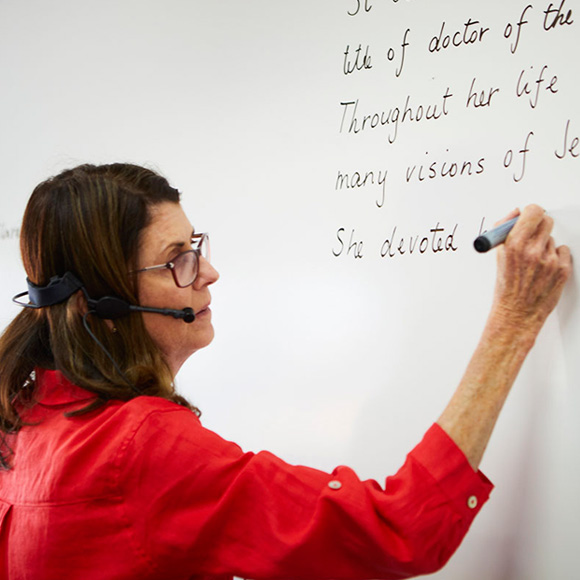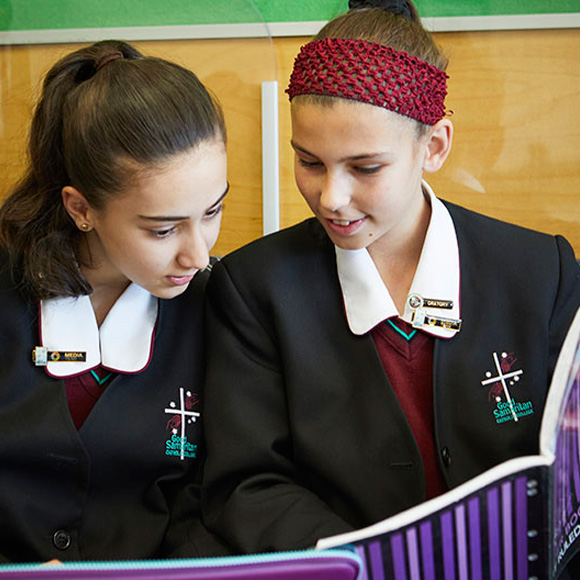Contents
NAPLAN Online
Provides information on the transition to NAPLAN Online for NSW schools.
What’s changing?
The national assessment program literacy and numeracy (NAPLAN) tests will change from paper to online assessment by 2020. The move to NAPLAN Online will bring new benefits for students and teachers.
Benefits
Significant planning, research and trialling has been ongoing since 2012 to support the move to NAPLAN Online. Online testing creates new opportunities that are not possible with paper tests.
- NAPLAN Online will provide better assessment, more precise results and faster turnaround of information.
- Most students find online assessment more engaging.
- NAPLAN Online will use tailored testing, which gives students questions better suited to their ability, resulting in more detailed individual assessment.
- Online assessment will reduce the time it takes to mark and provide feedback to schools and teachers.
- The precision and improved timing of the results will help teachers streamline their teaching more specifically to student needs.
- Once all schools complete NAPLAN online, student results will be returned to parents and carers within weeks of the NAPLAN test, as opposed to months.
For further information about NAPLAN Online benefits, visit the ACARA website.
NSW transition approach
In 2019, approximately 50% of schools across Australia continued the move from paper NAPLAN tests to NAPLAN Online. Ministers have decided that the final year for transition to NAPLAN online is 2021.
In 2019, 80% of NSW Catholic schools transitioned to NAPLAN Online with almost 100% expected to deliver NAPLAN Online in 2020.
NSW Education Standards Authority (NESA) provides information about preparation activities including training to all schools via NESA news and by direct email contact with principals
For advice about the CSNSW transition approach or your school’s transition to NAPLAN Online, please contact naplanonline@csnsw.catholic.edu.au
Best Start Kindergarten Assessment
Every child enters school with their own set of experiences, skills and abilities. These skills form a foundation for future learning and students need to develop these skills to be able to communicate complex ideas, think critically and engage with the world.
The Best Start Kindergarten Assessment provides teachers with the opportunity to sit with a child one on one, focusing on what that child can do. This provides the teacher with another rich source of information on how to best support that child’s next steps
Best Start Kindergarten Assessment (BSKA) allows schools to enter student information via an online NSW Department of Education tool, referred to as PLAN2. The BSKA items are mapped to the Literacy and Numeracy Progressions.
Data that is generated by the assessment may be used to inform families about their child’s early literacy and numeracy development.
Arrangements for non-government schools selected to use BSKA and PLAN2 under the NSW Literacy and Numeracy Strategy will be maintained for the duration of the strategy until 2020.
For more information regarding accessing BSKA and/or PLAN2 please contact litnum@csnsw.catholic.edu.au
Best Start Year 7
Students start secondary school with different skills and abilities in literacy and numeracy. It is important that Year 7 teachers have access to information about their new students, to plan their teaching accordingly.
What is Best Start Year 7?
Best Start Year 7 is a literacy and numeracy assessment package for schools to use in the first five weeks of Year 7. It is designed to:
- provide teachers with consistent and up-to-date information about new students’ skills and abilities in literacy and numeracy
- identify students at risk of falling behind
- help inform targeted teaching and intervention strategies.
The assessment package includes links to syllabus and support material.
Best Start Year 7 test items are automatically mapped to the Learning Progressions via an online NSW Department of Education tool, referred to as PLAN2.
In 2019, a small number of NSW Catholic schools participated in a pilot of Best Start Year 7. In 2020 the Best Start Year 7 assessment will be available to all NSW Catholic secondary schools on an opt-in basis.
Further information can be found here – Best Start Year 7 assessment
For any enquiries regarding NSW Catholic school participation in 2020 Best Start Year 7 please email litnum@cecnsw.catholic.edu.au
Validation of Assessment for Learning and Individual Development (VALID)
Online diagnostic science assessments for students in Years 6, 8 and 10. The program provides online end-of-stage assessments for the science key learning area.
Three assessments packages are available and are offered to all NSW Catholic schools on an opt-in fee for service basis.:
- VALID Science & Technology for Year 6
- VALID Science for Year 8
- VALID Science for Year 10
Schools with students in Years 6/8/10 can participate by registering their full cohort. Teachers of the registered schools will participate in 5 hours of NESA registered professional learning and then mark the extended response tasks for their school.
Register your school for VALID
Registration in the VALID program provides:
- high quality syllabus-based assessment frameworks that describe levels of achievement against standards to inform school-based assessment practices
- online multimedia assessment tools that provide diagnostic data and time efficient reports to inform planning, programming and assessment across learning stages
- cohort level affective domain data from interest and engagement survey questions within each assessment
- five hours of NSW Education Standards Authority (NESA) registered training that reinforces staff capability in making consistent judgements against syllabus standards
- systems and processes to monitor student achievement of syllabus outcomes and content across stages
- external student assessment data that can be used in combination with school-based assessments to inform whole school planning processes.
A fee of $10 per student is applicable for non-government schools.
All students who participate in a VALID assessment will receive an individualised student report outlining the level of understanding they demonstrated during the assessment.
Registrations for 2019 are now closed. Registrations for 2020 will open term 1 2020.
Contact karen.ferrante@csnsw.catholic.edu.au for information regarding 2020 registration.
Learning Progressions
The NSW Literacy and Numeracy Strategy commits to deliver new literacy and numeracy learning progressions to schools as a tool to assist with monitoring the progress of students in their Literacy and Numeracy development.
What are the learning progressions?
The learning progressions are a teaching and learning resource. They describe common pathways of literacy and numeracy development from Kindergarten to Year 10. The learning progressions map to the NSW syllabuses and the Australian curriculum in English and maths, demonstrating the development needed to meet stage outcomes. They can be used to assist teachers to determine what students know already, and what they need to learn next. Unlike the NSW syllabuses, the learning progressions are not mandatory.
Why were the learning progressions developed?
The learning progressions have been developed to help identify student needs, and to support classroom planning and reporting. The learning progressions can assist teachers with:
- accessing comprehensive information about literacy and numeracy development from K-10
- identifying knowledge, understanding and skills that can be demonstrated across all learning areas, not just English and maths
- locating a student’s current knowledge and ability more accurately to determine the learning that should follow.
All Australian education ministers agreed in December 2015 to develop national literacy and numeracy learning progressions. The Australian Curriculum, Assessment and Reporting Authority (ACARA) and the NSW Department of Education have led development over 2016-17. Development has been informed by available evidence and consultation with researchers and experts in literacy and numeracy education. Trials have taken place across Australia, including in NSW, to ensure the learning progressions are usable and reliable across a range of different schools.
For any enquiries regarding the Literacy and Numeracy Progressions in NSW Catholic schools please email litnum@cecnsw.catholic.edu.au.
Teaching Strategies
Literacy
Resources to use in conjunction with the results of NAPLAN to identify areas of development in reading, writing and language conventions.
The aim of English in Years K–10 is to enable students to understand and use language effectively, appreciate, reflect on and enjoy the English language and to make meaning in ways that are imaginative, creative, interpretive, critical and powerful.
NAPLAN tests help identify students’ literacy skills and trends within schools, grades and cohorts. Students are assessed using common national tests in Reading, Writing and Language Conventions (spelling, grammar and punctuation). Teachers use NAPLAN results as part of a suite of assessment opportunities to build up a summary of student achievement aiding in identification of students who may require greater challenges or additional support.
The resources contained in the web-links/ hyperlinks and apps are to be used after evaluation by the teacher. The resources in Scout (NAPLAN analytics package produced by DoE and available to all NSW schools) are research based and reflect current directions such as:
- the quality teaching model
- the modelled, guided and independent teaching cycle
- the NSW English syllabus for the Australian curriculum K–10: outcomes and objectives
Numeracy
Resources to assist development in the areas of number and algebra, measurement and geometry, and statistics and probability.
The National Assessment Program – Literacy and Numeracy (NAPLAN) teaching strategies make reference to:
The numeracy teaching strategies in Scout (NAPLAN analytics package produced by DoE and available to all NSW schools) provide teachers with strategies and
activities to assist students:
- access the knowledge they need using strategies that are explicit and relevant
- develop their understanding of concepts
- transfer the skills they have developed using the strategies in new, contextual and varied situations.
AEDC
The Australian Early Development Census (AEDC) is a national population-based measure of how children in Australia have developed by the time they start their first year of full-time school. All schools with kindergarten students participate in the census. NSW Catholic schools with kindergarten students participate in Australian Early Development Census (AEDC) every 3 years.
Teachers complete an on-line questionnaire based on observations of the children in their class. The AEDC involves the collection of data across five developmental domains:
- Physical Health and Wellbeing
- Social Competence
- Emotional Maturity
- Language and Cognitive Skills (school-based)
- Communication Skills and General Knowledge
Each of the five domains has a corresponding set of questions. Data is collected for individual children, de-identified and then reported for a group of children at a community, state/territory and national level. The information is used by schools, early childhood educators, health services, local council community groups and governments to help plan and allocate the right type of services and support for their community.
Further information is available on the National AEDC website.
Latest News

Brother John Taylor Fellowship – applications now open

The Case for Catholic Schools

